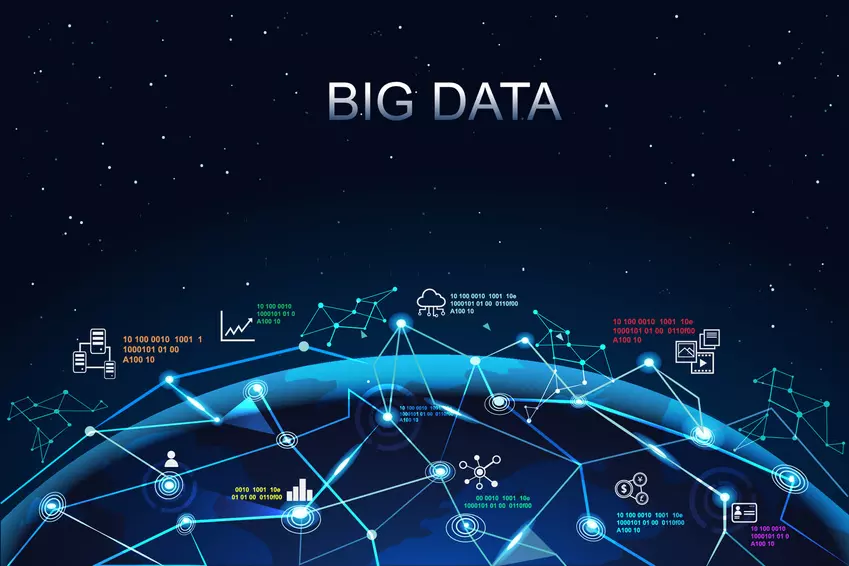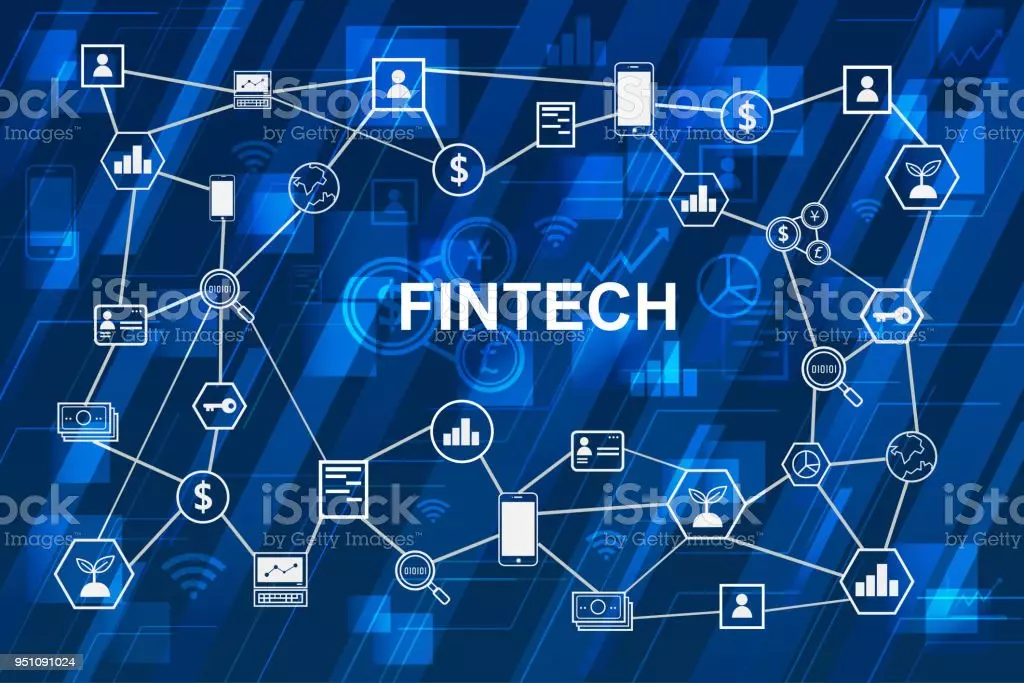How Fintech Allow Retailers to Go Global
Fintechs allow retailers worldwide to reach a global audience. Specifically, advances such as decentralized finance and borderless payment solutions enable merchants to go global and build a streamlined shopping experience. By eliminating payment barriers, these technologies lead the future of global retail.
And big data plays a unique role in revolutionizing the financial industry, allowing it to move forward with rapid advances. Specifically, it helps retailers with insight-driven decision-making.
This article discusses how fintech helps retailers go global. Also, it reveals the correlation between fintech and big data. Moreover, the article sheds light on how fintech is shaping the future of finance.
Big Data Is Reshaping Fintech
Big data refers to larger and more complex data sets derived from new data sources. Increasingly, big data plays a vital role in fintech development.
Big Data
Big data features greater variety, comes in increasing volumes, and is generated with more velocity and veracity. The latter denotes its trustworthiness. These factors are known as the four Vs of big data.
The global big data analytics market is anticipated to generate $68.09 billion by 2025 from about $15 billion in 2019. Partly, this revenue is expected to come from the predictive analytics software sector. Predictive analytics helps make business outcomes predictable and more reliable.

Such predictability can be achieved by analyzing various historical or past data based on data mining and predictive modeling. Specifically, data mining is about turning raw data into useful information. And predictive modeling is a mathematical process that aims to predict future events or outcomes by analyzing data patterns or data sets.
For example, companies collect big data from public comments on social networks and websites to conduct analyses. Also, they voluntarily gather information from personal electronics and apps. Finally, they conduct questionnaires or surveys.
Then, companies analyze the data to offer targeted solutions and products to clients directly and effectively. For example, such data analyses allow companies to reveal which international audiences are more interested in their products and services and what preferences they have.
Big Data in Fintech
Big data in fintech is associated with the petabytes (PB) of data that banks and financial organizations utilize to predict consumer behavior and develop strategies. A PB is a unit of digital information.
Specifically, financial technologies use big data for:
- Valuable insights and better decision-making
For instance, financial institutions analyze their clients’ banking databases to predict client behavior and build more robust strategies. Specifically, such data analysis allows banks to forecast what services and credit options their clients will choose based on their previous activities. Also, banks find out what their clients like or dislike about their products and services.
As a result, they can improve their pain points, discover their competitive advantages, and build stronger bases for growth.
- Better services and more customer-focused products
For example, fintech companies use data to determine customers’ spending habits and offer customized products. Specifically, they can reveal what services their customers purchase or what rates they’re ready to pay. Based on such data analysis, a lending company can offer their customers a loan option that may better fit their needs.
- Improved operations
For instance, fintech companies use data analytics mainly in demand, supply, and risk management. As a result, they know whether their customers are making on-time payments, using their credit cards or not, and which products they prefer. Additionally, data helps these organizations detect and prevent payment fraud.
What Will Be the Future of Fintech?
The ongoing adoption of big data is transforming the financial services landscape. For instance, technological innovations in the financial industry give birth to more advanced solutions in retail banking, online trading, and lending.
For example, Buy Now, Pay Later (BNPL) for businesses is gaining more popularity worldwide. This payment method is one of the innovative solutions customers enjoy when making purchases.
BNPL is a short-term financing option allowing consumers to make purchases and pay for them in installments. It’s ideal for those who lack the necessary financial resources or don’t want to pay upfront for purchases.

According to McKinsey, new tech will shape the future of fintech in more than one way.
For instance:
- Artificial intelligence (AI) will be widely used to identify data patterns across complex financial networks. Specifically, a pattern can be a continuous dip or rise in numbers over time. For example, AI will be widely used for tailored products, personalized user experiences, analyses, chat interfaces, automated transactions, robo-advisors with minimal human supervision, credit ratings based on non-financial data, and facial recognition authentication.
- Blockchain will increasingly be used to store financial transactions in many places at once. Namely, a blockchain is a distributed ledger or a database that isn’t controlled by a central authority such as Google, a small company, or an individual.
- The global fintech blockchain market is growing rapidly. And the growth is based on the increasing consumer demand for affordable and quicker cross-border payment transactions.
Instead, Distributed Ledger Technology (DLT) allows one to simultaneously record, share, and synchronize data across multiple data stores among a distributed network of participants.
What Are Some of the Famous Fintech Companies?
Financial technology companies headquartered in the U.S. and China top the list of the largest fintech companies worldwide by market capitalization.
- In 2021, U.S.-based Visa and MasterCard were the largest payment companies, with a market capitalization of around $478 billion and 368 billion, respectively.
- China-based Ant Financial or Ant Group came third with a market capitalization of $312 billion.
- Stripe, Adyen, and Klarna (headquartered in Europe) were also ranked as top fintech companies by market capitalization.
Fintech Going Global: Go Global, Retail!
Technological advances like the Internet of Things (IoT) and cloud computing are making fintech global. How?
- The Internet of Things represents a system of interrelated computing devices, mechanical and digital machines, objects, animals, or people with unique identifiers (UIDs). UIDs are used to provide identification.
- Specifically, fintech relies on the IoT, blockchain, AI, data analytics, and 5G and Beyond (B5G) to make financial services available globally, more user-friendly, secure, and efficient.
- Think of cloud computing as a way to access information over the Internet instead of building, managing, and maintaining it on your hard drive or servers.

The fintech industry has witnessed significant growth over the last decade. And the global fintech market is forecast to grow at a compound annual growth rate (CAGR) of about 20% in the upcoming four years, reaching around $305 billion by 2025, as GlobeNewswire reports.
With fintech changing the financial industry, retail is transforming and evolving as a result. And fintech innovations are making shopping faster and more convenient. But what fintech innovations help retail go global?
Decentralized Finance (DeFi)
Decentralized finance (DeFi) aims to eliminate third parties from financial transactions. Thanks to DeFi, one can avoid relying on intermediaries, including brokerages, exchanges, or banks. It uses smart contracts and is based on blockchain technology. Unlike a traditional contract, smart contract terms are executed as code.
DeFi services rely on smart contracts and the decentralized nature of blockchains to provide financial services with global access. For instance, lending and spot trading (the buying or selling of foreign currencies) are two of these services. DeFi enables anyone with Internet access to use financial products and services globally. For example, DeFi apps (dapps) are used for peer-to-peer or P2P (person-to-person) financial transactions.
Borderless Payment Technologies
Cross-border or borderless payments refer to transactions in which the payer and the payee are in different countries. For example, bank transfers, credit card payments, electronic wallets, and mobile payments are the most prevalent methods of transferring funds across borders.
Multiple Payment Options
Statista reports that digital and mobile wallets represented about half of global e-commerce payment transactions in 2021. And this number is projected to make up 53% by 2025. Additionally, credit and debit cards are consumers’ most widely used payment methods. So, by having these options available on e-commerce websites, retailers reach more people globally and boost sales as a result. In addition, multiple payment options improve shopping experiences by decreasing shopping cart abandonment rates and creating customer loyalty.
Multicurrency Payment Processing
By offering multicurrency payment processing, apart from local currencies, retailers target new markets overseas and boost revenue.
The good news is that retailers can work with payment processing companies that cooperate with large, high-quality banks in international markets to offer merchants global payments. As a result, retailers can price their goods and services in the preferred local currency of customers.
Summary
Going global isn’t recommended for retailers: it’s a must. Thankfully, fintech growth allows retailers to go global to adapt to the times and meet modern consumers’ demands. Specifically, decentralized finance, cross-border payments, multiple payment options, and multicurrency payment transactions enable retailers to enter international markets and increase their customer base globally.
Table of Contents
- Big Data Is Reshaping Fintech
- Big Data
- Big Data in Fintech
- What Will Be the Future of Fintech?
- What Are Some of the Famous Fintech Companies?
- Fintech Going Global: Go Global, Retail!
- Decentralized Finance (DeFi)
- Borderless Payment Technologies
- Multiple Payment Options
- Multicurrency Payment Processing
- Summary



